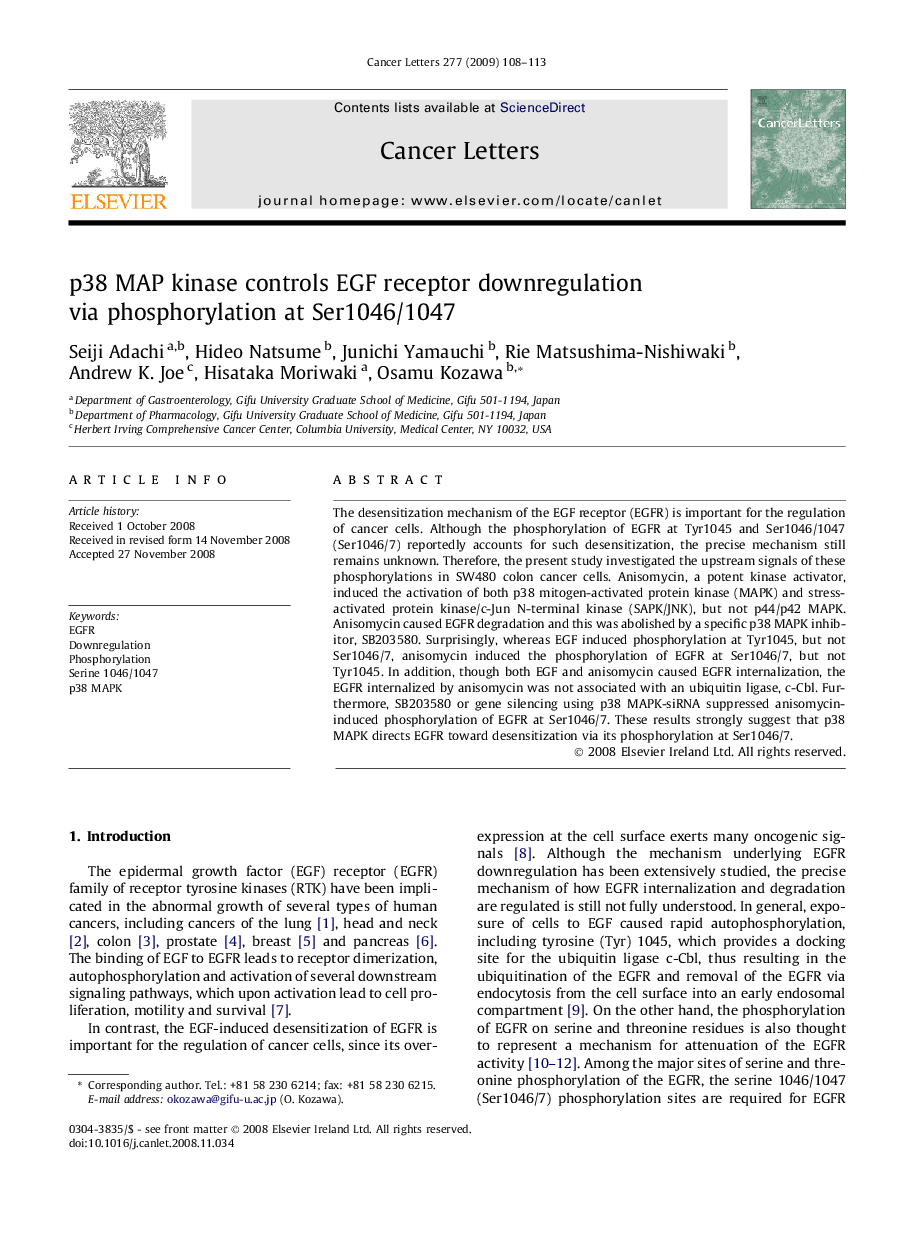| Article ID | Journal | Published Year | Pages | File Type |
|---|---|---|---|---|
| 2114566 | Cancer Letters | 2009 | 6 Pages |
The desensitization mechanism of the EGF receptor (EGFR) is important for the regulation of cancer cells. Although the phosphorylation of EGFR at Tyr1045 and Ser1046/1047 (Ser1046/7) reportedly accounts for such desensitization, the precise mechanism still remains unknown. Therefore, the present study investigated the upstream signals of these phosphorylations in SW480 colon cancer cells. Anisomycin, a potent kinase activator, induced the activation of both p38 mitogen-activated protein kinase (MAPK) and stress-activated protein kinase/c-Jun N-terminal kinase (SAPK/JNK), but not p44/p42 MAPK. Anisomycin caused EGFR degradation and this was abolished by a specific p38 MAPK inhibitor, SB203580. Surprisingly, whereas EGF induced phosphorylation at Tyr1045, but not Ser1046/7, anisomycin induced the phosphorylation of EGFR at Ser1046/7, but not Tyr1045. In addition, though both EGF and anisomycin caused EGFR internalization, the EGFR internalized by anisomycin was not associated with an ubiquitin ligase, c-Cbl. Furthermore, SB203580 or gene silencing using p38 MAPK-siRNA suppressed anisomycin-induced phosphorylation of EGFR at Ser1046/7. These results strongly suggest that p38 MAPK directs EGFR toward desensitization via its phosphorylation at Ser1046/7.
